WRI at the Urban Transport for Liveable Cities Forum
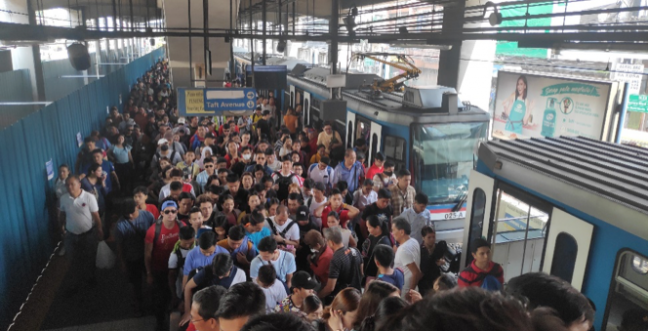
The ‘Urban Transport for Livable Cities Forum’ held at Manila, Philippines provides a platform for organizations and experts across the world to share impact stories, innovative solutions and support mechanisms that have the potential to enable more sustainable and livable habitats.
In cities today, commuting has emerged as a major challenge over the last decade due to policies and frameworks that have made it easier to own private vehicles, resulting in traffic congestion and rising air pollution. Asian cities in particular, have experienced rapid growth that far exceeds the supply, resulting in unreliable service networks and a higher dependence on personalized transport. To develop more inclusive urban transport systems and create a push for necessary government mechanisms, citizen-led initiatives play a key role in the transition towards a more sustainable future. Hence, there is a need to consider citizen-led approaches with regard to urban transport, in order to make it both inclusive and affordable.
The 2019 forum, organised from 30th September – 4th October, offered an opportunity for leading organisations such as WRI India, to showcase their learnings from ongoing research efforts and projects. The audience consisted of experts from organizations like UITP (Union Internationale des Transports Publics), ITDP (Institute for Transportation and Development Policy), funding organizations like GIZ (Deutsche Gesellschaft für Internationale Zusammenarbei), KfW Development Bank and ADB (Asia Development bank). The event also included representatives from city implementing agencies, government representatives, private consultants and experts in the transport and urban planning sectors.
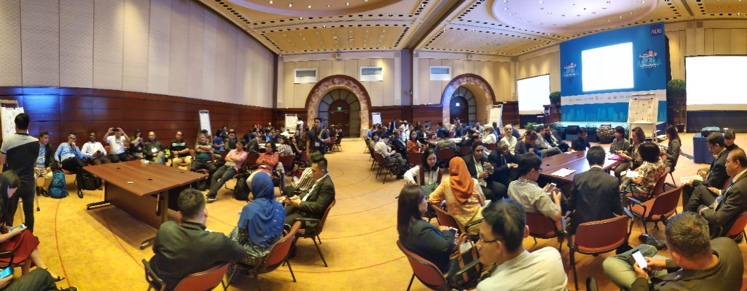 UTF event in Manila, Philippines
UTF event in Manila, Philippines
Key discussions
The forum spanned across 5 days, with sessions spanning different categories including policy and regulations, holistic transport solutions, future technologies, urban transport planning, and financing. WRI having been previously engaged with different mobility initiatives, was invited to host multiple sessions spanning from shared and electric mobility, first and last mile connectivity and capacity building among others. The sessions were undertaken by Dr. OP Agarwal (CEO, WRI India), Sudeept Maiti (Senior Manager, Integrated Transport) and Rajeev Malagi (Senior Project Associate, Sustainable Cities).
Enabling Safe Access to Mass Transit – Interactive Workshop
The Safe Access workshop organized by Rajeev aimed to ideate and co-create first and last mile connectivity solutions for mass transit. This workshop used an interactive board and role play activity to help participants discuss and derive strategies based on the safe access principles developed by WRI India. The participants representing a wide spectrum of Asian cities found the issues of first and last mile connectivity to be very similar to their context in terms accessibility, safety, infrastructure and others. This helped the participants discuss and derive relevant strategies which could be adapted for station areas around mass transits in their cities.
The tool having been tried and tested across various national and international platforms is generally hosts this workshop for a maximum of 40 participants. But the UTF event provided an opportunity to test this tool for more than 120 participants, and it was successfully achieved with active participation.
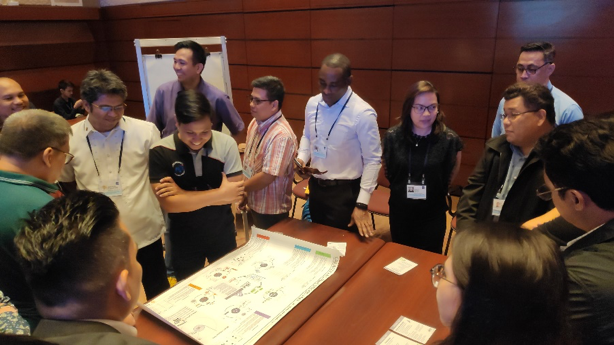
Safe Access session at the UTF event
Transformative Urban Mobility Initiative
TUMI, an international partnership with multiple global organizations including WRI; headed by Government of Germany organized a session to discuss about transport related activities activities to pilot and promote improvements in mobility in different developing countries around the world. It aims us these pilots to demonstrate best practices and facilitate scaling up of these projects.
Organized by GIZ, WRI, KfW (Kreditanstalt für Wiederaufbau) and ADB, this session helped establish the intent of initiative and the role of the organizations in achieving success in projects. While GIZ provided the larger narrative and how it has engaged with selected cities, Rajeev from WRI presented a specific case of ‘Reimagining Fort Kochi’ project from Kochi city, which is one of the winning entries for the 2019-20. Robert Valkovic form ADB addressed the need and method of scaling up these pilot projects to city wide solutions. The session led to interesting conversations on how the projects could be shaped as a people-led process and inclusive in nature. Participants discussed the need for banks to invest in pilot projects at the city-level to demonstrate the advantage of new mobility initiatives and create safe access in cities, as the governments lack the necessary funding and capacity to achieve the same.
Session on Applied Knowledge
The mechanisms behind creating sustainable transport systems have proven effective both in developed as well as developing cities through certain initiatives. However, it is equally important to translate these lessons for other developing countries. Dr. OP Agarwal, CEO, WRI India, presented one such training approach i.e. LUTP (Leaders in Urban Transport Program) as an important case study that could be applied by urban and transport experts.
The session initiated discussions about the need for learning platforms and methods to impart best learnings and best practices through successful tested solutions and learnings. Session on Absorbing Shared and Electric Mobility into City Mobility Systems:
The landscape of transportation is changing considerably with the advent of new technologies and more significantly with large amounts of data and intelligence that is now available. As the future of transport moves towards being electric and shared, the city also needs to adapt to embrace the transformation. The role of the city is a not an easy one. While acknowledging the gap that the new mobility models have been able to bridge it must provide a road map for traditional transportation systems to adapt and integrate new technologies and models. This may manifest into new infrastructure, or information or institutional set ups. Cities also have the responsibility to vet solutions and ensure many other aspects such as equity, affordability, safety and security, to name a few. This creates a need for cities and governments to be flexible and adaptive, enabling mechanisms that allow for innovation -- an aspect that regulators and governments are rarely known for.
Cities must develop frameworks and strategies for the future of mobility, which is shared and electric. A city-wide challenge format is evolving as the new format for developing, adopting and disseminating knowledge on mobility solutions in the city. The discussion moderated by Sudeept Maiti, S. Manager, WRI leveraged the expansive expertise of the panel composed of Dr. OP Agarwal, CEO, WRI India, Mr. Pras Ganesh, Program Director, Asia-Pacific Region, Toyota Mobility Foundation and the Vice President, Toyota Daihatsu Engineering & Manufacturing Co., Ltd. The VP shared learnings from TMF’s engagement across difference cities in Asia with new mobility solutions. The third panelist Ms. Gayang Ho, Leader of Research & Policy Development, UITP Asia Pacific Center for Transport Excellence (AP CTE) Consulting talked about measures that need to be undertaken to ensure that shared mobility is complementary to and not competing with city mobility investments and priorities, while Mr. Jürg Grütter, CEO, Grutter Consulting, shared insights on eVehicle Capacity Development for Cities.
The discussion itself touched upon current legal and regulatory barriers and how to accelerate the adoption of these emerging trends. It explored how prepared developing Asian cities were to meet this challenge and put forward some simple measures that could be adopted to ensure an enabling environment for exploration and experimentation. In addition, the discussion highlighted how shared and electric mobility solutions tend to be private sector driven with an underlying profit motive, and typically captures the higher value mobility demand. Considering this, how would it be best to mitigate the negative impacts on lower income users, without stifling the innovation and financing that the private sector usually brings?
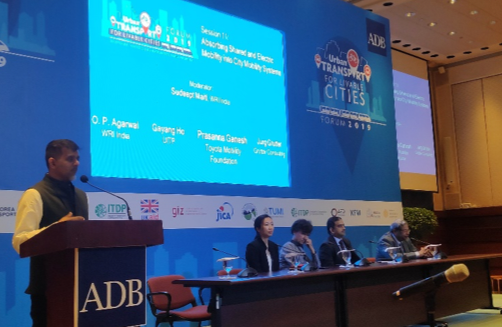
Sudeept presents at the Shared and E-Mobility session
Closing Session
The approaches taken up by cities and countries vary based on the local context, along with the financial and administrative ecosystem. However, there is a critical need to synergize these efforts to create a wider strategy that addresses the global needs of the future. The closing panel session of the UTF event addressed by Dr. OP Agarwal along with other representatives from partner organisations and funding agencies, involved discussions on the lessons learned through transport investments in Asia over the last decade.
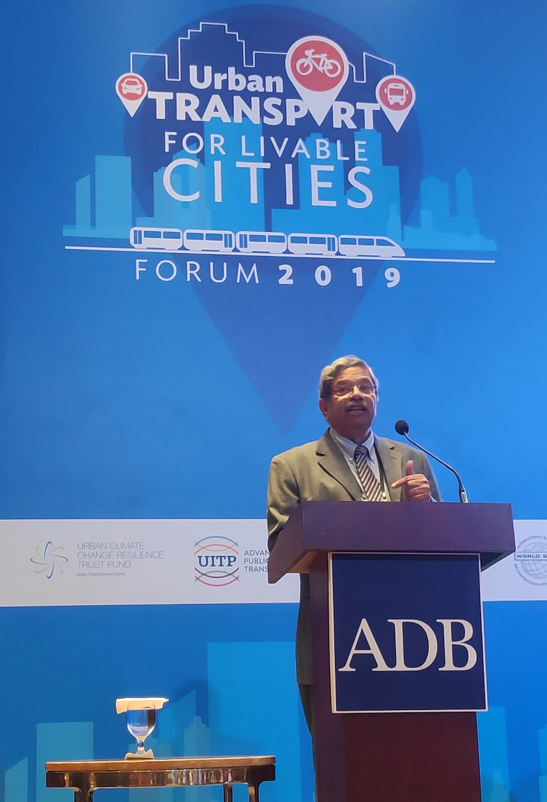
Dr. OP Agarwal addresses the participants during the closing session
Conclusion
The event served as an important platform to showcase WRI success stories in the mobility sector and served as an opportunity to strengthen existing networks with ADB and other partner agencies. The discussions during sessions followed by various interactions have opened up new avenues for collaboration and further emphasized the need for cross cultural knowledge exchange. The takeaway for cities with regard to the ongoing transformation in the mobility sector has been to establish frameworks that allows cities to adapt and evolve with the changing nature of technologies, and ensure that the benefits of innovation are accessible to everyone equally. We look forward to participating in similar engagements to scale up existing projects and find unique and innovative opportunities for collaboration with other stakeholders in the mobility and development sector.

